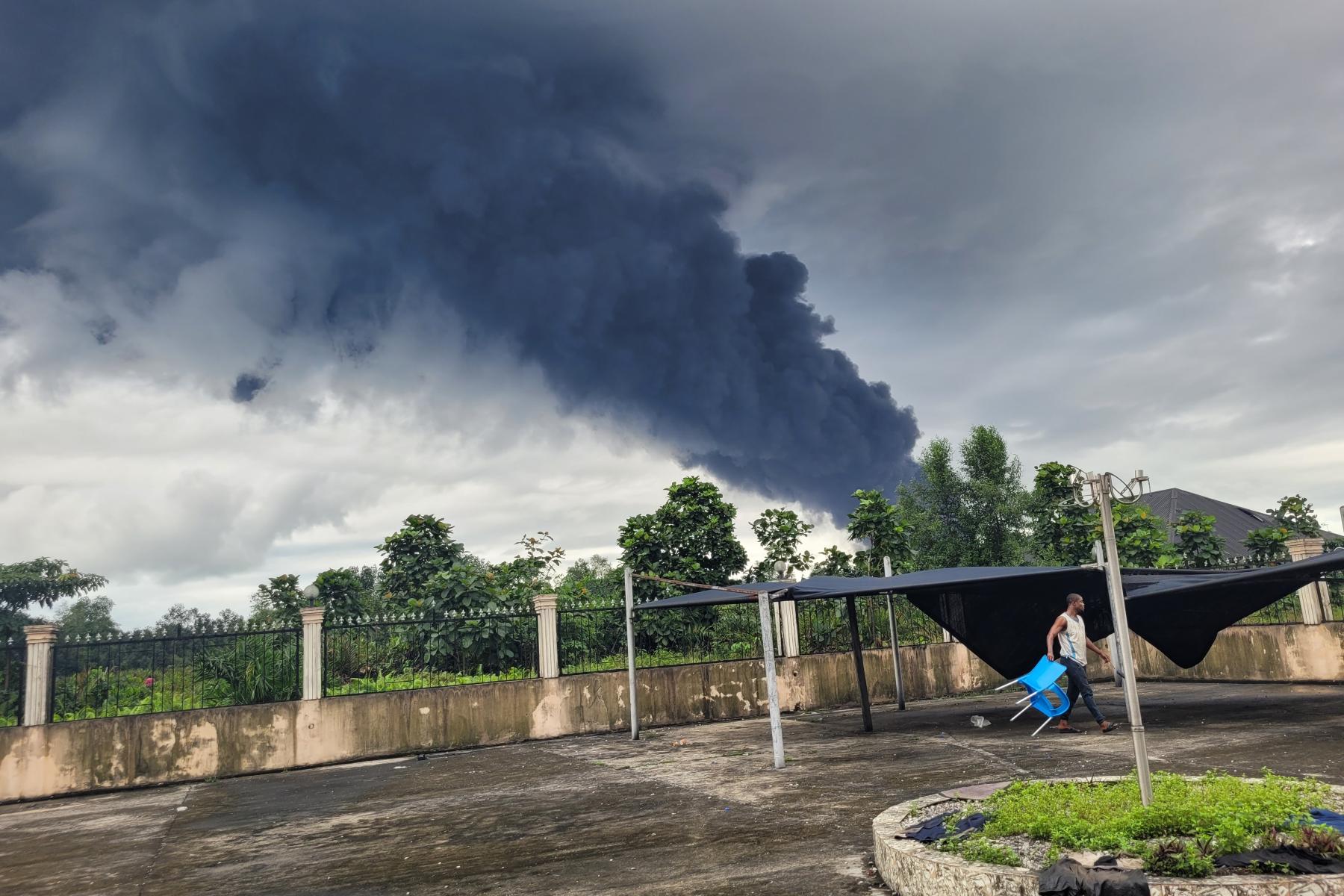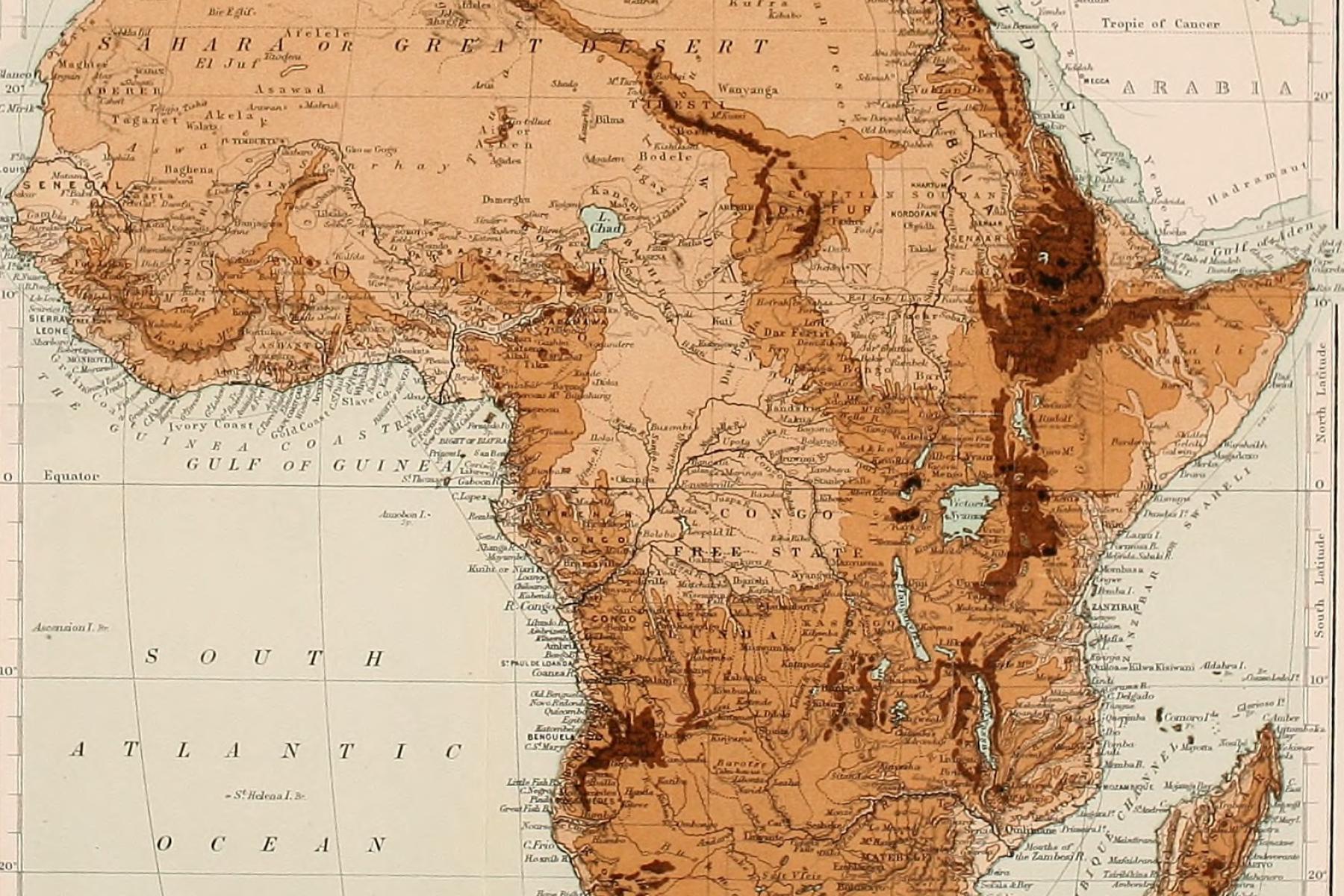Natural Resource Management and Conflict in Africa
The University of Ghana and Danish Institute for International Studies welcome researchers and practitioners from Africa, Europe, and beyond to this three-day conference in Copenhagen.
Below, you find information on all nine panels, abstracts, author information and logistical information for being in Copenhagen.
PANEL 1: MILITARIZED MANAGEMENT OF RESOURCE CONFLICT
‘The military mind-set is still too much’: security practitioners and the internal dynamics of hybrid extractives security arrangements (pdf)
Jethro Norman, DIIS
Exploring economic-security nexus and galamsey: The case of Tarkwa-Nsuaem Municipality – Ghana (pdf)
Richard Asante and Pius Siakwah, University of Ghana
The Mozambican Cradle of the Makonde Nation and its Wars of Wealth: Challenges and Opportunities (pdf)
Sky Mkuti, The Independent Institute of Education/University of South Africa
Conflict and Natural Resources: Protracted Crisis, Conflict and Rent-seeking in Mozambique (pdf)
José Jaime Macuane, University of Eduardo Mondlane, Lars Buur, Roskilde University, and Padil Salimo, University of Eduardo Mondlane
Soldiers, Shovels, and the State: Militaries and State-building in Post-colonial Senegal (pdf)
Lindsey Pruett, Cornell University
PANEL 2: NON-STATE RESPONSES TO RESOURCE CONFLICT
Indigenous Institutions as an Option for Managing Natural Resource-Based Inter-Ethnic Conflict in Ethiopia (pdf)
Demis Mengist Wudeneh, Addis Ababa University
Violence and Sacral Conservation: The Co-production of norms in the Oil Rich Niger-Delta (pdf)
Iwebunor Okwechime and Akin Iwilade,
Obafemi Awolowo University and the University of Edinburgh
Demystifying grievance, greed, and rent-seeking in oil communities’ conflicts in Nigeria (pdf)
Ndubuisi N. Nwokolo, Nextier (Nigeria) and University of Birmingham
The politics of artisanal small-scale gold mining: the inverse relationship between formal and informal institutions in Ghana (pdf)
Lars Buur, Roskilde University, Abdul-Gafaru Abdulai, University of Ghana, and Paul Stacey, Roskilde University
The Establishment of an “animal market” in Gushegu and its implications for water availability, community livelihoods, and conflicts among competing resource uses/users (pdf)
Osman Alhassan, University of Ghana
PANEL 3: TAPPING INTO RESOURCES BEYOND STATE CONTROL
Pipeline disruptions and surveillance contracting systems in Nigeria’s oil governance and security (pdf)
Esther Egele-Godswill, University of Edinburgh
Conflict over Natural Resources and Religious Extremism: Case of Mozambique (pdf)
Veronika Čáslavová, Masaryk University
Histories of natural resource scarcity, raiding, and range management in Northwestern Kenya (pdf)
Mads Yding, University of Oxford
Governing access to drinking water in the Congolese context between the formal framework and the practices of the actors: a problem of normative conflict? (pdf)
Narcisse Mideso, Universite Libre de Bruxelles, and Université Catholique de Bukavu, DR Congo
Trust, hope and leadership in water user groups: configurations of social norms for outcomes of collective action in fragile settings (pdf)
Sophie Erfurth, University of Oxford
PANEL 4: GREEN TRANSITION DILEMMAS
Conflicts over Renewable Investments on the Margins of the State: The Case of Kenya’s Lake Turkana Wind Power Project (pdf)
Ilse Maria Renkens, DIIS
Decentering bioeconomy: green extractivism, fractured social relations, and forsaken responsibility in rural Ghana (pdf)
Eric Mensah Kumeh, Sabaheta Ramcilovic-Suominen, Natural Resources Institute, Finland and Christian Pilegaard Hansen, Ørsted
Tropical deforestation, climate change and land use conflicts – a review (pdf)
Mike Speirs, Independent researcher (guest at DIIS)
Contestation, conflict and claims-making around the Lake Turkana Wind Power windfarm, northern Kenya (pdf)
Jeremy Lind, Institute for Development Studies, and Daniel Salau Rogei, Carleton University
Facing old and new risks in arid environments: The case of pastoral communities in Northern Kenya (pdf)
Janpeter Schilling, Peace Academy Rhineland-Palatinate, University of Kaiserslautern-Landau
PANEL 5: FORCED DISPLACEMENT AND ENVIRONMENTAL CONSEQUENCES
Slavery, Forced Displacement and Climate Change in Western Mali (pdf)
Marie Rodet, SOAS, and Lotte Pelckmans, University of Copenhagen, Mamadou Sène Cissé, Donkosira, Mali
Bamba Kuni: energy support cash transfer programming in Kakuma Camp and Kalobeyei Refugee Settlements, Kenya (pdf)
Kipkemboi Kandie, University of Eldoret, Anne L. Bartlett, United Arab Emirates University, and Wilson Kipkore, University of Eldoret, Kenya
The Contest for Living Space between Refugees and local Communities in Kyangwali Refugee Settlement in Bunyoro Sub-region in Western Uganda (pdf)
Robert Ojambo, Kyambogo University
PANEL 6: THE PERIPHERY AS A NEW CENTER OF RESOURCE CONFLICT
“Cattle Violence”: The politics and fantasies of cattle ranching in Ghana (pdf)
Frank K. Agyei, Kwame Nkrumah University of Science and Technology
What kind of Resource is it, really? Relations and contradictions underpinning inter-communal and state-community conflicts in the Mau Forest, Kenya (pdf)
Marie Müller-Koné, Bonn International Centre for Conflict Studies, and Kennedy Mkutu, United States International University
‘If you say you will not vote for me, then I will find you a place to steal’ – Relations between formal and informal actors and local state formation around illegal gold mining in Ghana (pdf)
Paul Stacey, Roskilde University
Contested Drylands: political hegemony, appropriation of land and economic resources, and emerging conflicts in the devolved units of Northern Kenya (pdf)
Eric Kioko, Kenyatta University, and Willis Okumo, Institute for Security Studies, Pretoria
Do individual and collective shocks raise or reduce cooperation? Divergent responses among farmers and herders in Senegal (pdf)
Alexandra Krendelsberger, Francisco Alpizar, Han van Dijk, Wageningen University & Mame Mor Anta Syl, University of Gaston Berger
PANEL 7: CONSERVATION
Exploring the Dynamics of Organized Violence as a Means of Resource Management: A Comparative Case Study of Samburu and Isiolo Counties, Kenya (pdf)
Evelyne Atieno Owino, Bonn International Center for Conflict Studies, and Clifford Collins Omondi Okwany, University of Nairobi
Contested Lands in urbanizing Spaces: Complex Challenges and Dynamics in Wetlands in Harare, Zimbabwe (pdf)
Sandra Bhatasara, University of Zimbabwe, and George Tonderai Mudimu, University of Western Cape, South Africa
Peace Parks amidst Conflict: The political ecology of Violent extremist mobilization in the WAP complex (pdf)
Luca Raineri, Sant Anna School of Advanced Studies, Italy
Can recolonization of Africa’s management of nature improve local stability, economic development and conservation of biodiversity using Chad’s Zakouma National Park as case? (pdf)
Stig Jensen, University of Copenhagen
Gender Dimensions of Protected Area Conflicts and Peacebuilding Strategies in Northern Ghana (pdf)
Ophelia Soliku, University of Business and Integrated Development Studies, Ghana
PANEL 8: LAND CLAIMS AND LAND-USE CHANGE
Land Administration and Conflicts in Ghana and Zimbabwe: A Historical Perspective (pdf)
Abel Gwaindepi, DIIS
Managing a resource conflict-prone environment (pdf)
Peter Narh, University of Ghana
Processes of boundary making in the Karamoja Cluster: Changing land tenure, conflict, and governance challenges (pdf)
James Drew and Per Knutsson, School of Global Studies, University of Gothenburg
Struggles without an end: Dispossession and Conflict among Maasai Pastoralists in Kajiado, Kenya (pdf)
Rahma Hassan, University of Nairobi/University of Copenhagen
Enclaving, Re-enclaving and Disenclaving: Conceiving a Political Ecology of Agrarian and Extractive Patterns in Southern Africa (pdf)
Saymore Ngonidzashe Kativu, German Institute of Development and Sustainability/Zarawi Trust
PANEL 9: ENVIRONMENTAL PEACEBUILDING
Governing (non)violent environments: oil and the hidden paradox of liberal peacebuilding in Ghana (pdf)
Nelson Oppong, Centre of African Studies, University of Edinburgh
Conflict, corporation, and environmental peacebuilding from below: insights from Somaliland (pdf)
Louise Wiuff Moe, Roskilde University/Syddansk University, and Mohamed Fadal, SORADI
‘Sustaining gender’ in natural resource management for Sustainable Peace: A critical analysis of UN Peacebuilding Fund projects for conflict prevention and women’s empowerment (pdf)
Maria Martin de Almagro, University of Ghent, and Caitlin Ryan, University of Groningen
Women’s Experiences of Prestige and Privilege amidst Vulnerabilities, during the Ethnic Wars in Northern Ghana (pdf)
Benjamin Kwansa, Deborah Atobrah and Dzodzi Tsikata, University of Ghana
Abdul-Gafaru Abdulai
Abdul-Gafaru Abdulai is an Associate Professor of Development Politics at the University of Ghana. His research focuses on the intersection between politics and development, with particular focus on social policy and social protection, natural resource governance, and public sector reform. He holds a B.A in Political Science from the University of Ghana, an MPhil in Development Studies from the University of Cambridge and a PhD in Development Policy and Management from the University of Manchester.
Abel Gwaindepi
Abel Gwaindepi is a Senior Researcher at the Danish Institute of International Studies (DIIS) and a postdoctoral researcher at Lund University´s Department of Economic History. He is also an external teaching fellow at Copenhagen University`s Centre of African Studies. He is primarily interested in economic history and the political economy of development in Africa. He is currently working on development finance themes (taxation and public debt) and the political economy of natural resource management in Africa.
Akin Iwilade
Lecturer in African Studies at the University of Edinburgh. Before Edinburgh, Akin taught International Relations at the Obafemi Awolowo University, Ile-Ife, Nigeria and African Politics at the University of Leeds, UK.
Alexandra Krendelsberger
PhD candidate at the Wageningen School of Social Sciences at Wageningen University & Research, and a research fellow at CGIAR FOCUS Climate Security. She uses mixed methods including (quasi-)experimental techniques, and qualitative approaches to investigate interactions between climate variability, livelihood shocks, and communal tensions, with a focus on farmer-herder conflicts. She has been a visiting researcher at the CGIAR Research Program Climate Change, Food Security and Agriculture (CCAFS) working on climate change adaptation of small-holder farmers.
Anne L. Bartlett
Anne has a PhD from University of Chicago and was associate professor in the Environment and Society Group, School of Humanities and Languages in UNSW, Sydney. Currently Anne is working in the Gulf in the department of Government and Society in the United Arab Emirates University.
Caitlin Ryan
Caitlin Ryan is Assistant Professor in International Security at the University of Groningen, Netherlands. She also has affiliations at the University of Makeni, Sierra Leone, and Sciences Po (Paris). Her research draws on debates in postcolonial and feminist security studies and on methods from Anthropology to engage with the political and economic dynamics in post-war contexts.
Christian Pilegaard Hansen
Christian Pilegaard Hansen, associate professor, University of Copenhagen. My research focuses on the political ecology, governance, political economy and environmental history of natural resources. He works through theoretical lenses of access, environmental justice, dispossession and participation. Most of my research has so far focused on developing countries, West Africa and Ghana in particular, working on renewable natural resources, notably forests, timber and wood fuels (wood energy). My publications include works on access, benefit sharing, recognition, inclusion, taxation, illegality and corruption. My approach is (predominantly) qualitative through methods of interviews, focus groups, archival and document analysis.
Clifford Collins Omondi Okwany
Research fellow in political science at the University of Nairobi, Kenya and Norway. He is currently a Doctor of Philosophy (Ph.D.) candidate at the University of Nairobi, and an adjunct lecturer at the same university and Rongo University.
Daniel Salau Rogei
Daniel Salau Rogei is a Post-doctorate Fellow in the Department of Sociology and Anthropology at Carleton University. His research interests focus on the intersections between culture and modernity, climate change, and sustainability in the context of pastoral societies in east Africa. His PhD research examined the nexus between extractionist development, wildlife conservation and community well-being in Olkaria-Suswa in Kenya’s south Rift Valley.
David Anderson
David Anderson is Professor of African History in the Global History and Culture Centre, Warwick University. His has held positions at Oxford, SOAS, Birkbeck, Princeton, Cape Town, and Cologne universities. Through numerous interdisciplinary collaborations and publications, he has been engaged in the politics of violence and security dynamics related to African environments since his 1987 edited volume Conservation in Africa: People, Policies and Practice (Cambridge University Press). Recently, he has delved into environmental histories and state violence through the programmes Resilience in East African Landscapes and African Rural Futures.
Deborah Atobrah
Deborah Atobrah is Senior Research Fellow at the Societies and Cultures Section, she holds a PhD and an MPhil in African Studies from the Institute of African Studies, University of Ghana. She has two Post Graduate Certificates from the University of Bergen Norway, in Global Health Challenges (2010) and in Global Poverty and Development (2008). Since 2018, Deborah has been a member of the Gender Working Group of the Ministry of Environment, Science, Technology and Innovation on the Nationally Determined Contributions (NDC) Support Programme on Climate Change.
Demis Mengist Wudeneh
Assistant Professor of Socioeconomic Development Planning and Environment, Department of Geography and Environmental Studies, Addis Ababa University, Addis Ababa, Ethiopia.
E-mail: demis.mengist@aau.edu.et
Dzodzi Tsikata
Dzodzi is a Professor of Development Sociology and was Director of the Institute of African Studies (IAS) at the University of Ghana from August 2016 to July 2022. She has a Ph.D in Social Science from Leiden University in the Netherlands. In a career spanning over 30 years, Tsikata’s teaching, research and publications have been in the areas of gender and development policies and practices; the politics and livelihood effects of land tenure reforms, large scale land acquisitions and agricultural commercialisation; and informal labour relations and conditions of work.
Emmanuel Kwesi Aning
Prof. Kwesi Aning is the Director, Faculty of Academic Affairs & Research, Kofi Annan International Peacekeeping Training Centre, Ghana and Clinical Professor of Peacekeeping Practice at Kennesaw State University, Atlanta. He holds a doctorate in Political Science from the University of Copenhagen, Denmark in 1998 and a BA (Hons) in History from the University of Ghana in 1986.
Eric Mutisya Kioko
Dr. Eric M. Kioko is a Social Anthropologist based at the Department of Environmental Studies and Community Development at Kenyatta University in Kenya. Eric is also a Principal Investigator and Lecturer at the Geography Department, University of Bonn, working in the DFG-funded collaborative research centre "Future Rural Africa: Future-Making and Social-Ecological Transformation" funded. His broad research areas include Peace & Conflict Studies, Green Futures, Political Ecology, Community Conservation, and Environmental Crimes
Eric Mensah Kumeh
Eric Mensah Kumeh, postdoctoral researcher, School of Geography and Leverhulme Centre for Nature Recovery, University of Oxford. His research lies at the intersection of environmental governance and political economy. He is interested in land access as a source of and a basis for addressing inequality in rural Africa. Eric uses predominantly qualitative methods to understand the delivery of social and environmental policies, shedding light on their differentiated impacts on stakeholders and exploring new ways to engender equitable outcomes.
Esther Egele-Godswill
Esther Egele-Godswill is a doctoral researcher at the Centre of African Studies at the University of Edinburgh. Her research deploys conceptual and theoretical lenses to explore how the continuous presence of oil infrastructures and their material failure through illegal oil bunkering activities in Nigeria’s Niger Delta shapes the everyday socio-economic, political, and cultural lives of people. Her research interests include oil infrastructure and governance, gender and environment, political violence, ethnographic approaches, everyday life and practices, and research methodology. Prior to her doctoral research, Esther taught at the Department of History and International Studies at the Federal University Otuoke, Nigeria.
Evelyne Atieno Owino
Evelyne is a PhD researcher, and she holds a master’s degree in international relations from the United States International University of Africa (USIU-Africa). Evelyne’s doctorate program is concentrated on investigating the interface of social-ecological transformations in rural Africa with a focus on the developments within the frontier spaces, and the organization of violence among the pastoral communities in Northern Kenya. This takes place in the sub-project “Violent Futures? Contestations along the Frontier” of the overarching project “Future Rural Africa”.
Frank Kwaku Agyei
Dr. Agyei is lecturer in the Department of Silviculture and Forest Management, Kwame Nkrumah University of Science and Technology, Kumasi. He is a scholar of environmental justice and rural wellbeing and studies the social and political-economic causes of the precarity and suffering of natural-resource-dependent communities. He conducts his research in four inter-linked arenas: natural resource tenure and access; distribution along natural resource commodity chains; decentralization and democratic local government; and household vulnerability in the face of climate change.
George Tonderai Mudimu
Dr George T. Mudimu holds a PhD in Public Management (Rural Development and Management) from China Agricultural University, Beijing, and an Honours in Public Administration from the University of Zimbabwe. He researches land politics, rural politics, livelihoods, agrarian change, and political economy. He was a post-doctoral fellow under the South African Chair on Poverty, Land And Agrarian Studies- Ruth Hall, at PLAAS, University of The Western Cape from August 2020 to December 2022. He has published in the Journal of Peasant Studies, Agrarian South: Journal of Political Economy, Review of African Political Economy, Journal of Contemporary African Studies and GeoJournal.
Ilse Maria Renkens
Ilse Maria Renkens is a PhD student as the Danish Institute for International Studies and Roskilde University. Her research studies the importance of global norms in conflicts between local populations and investors, often supported by state authorities, in two wind energy projects: the Lake Turkana Wind Power project in Kenya and the Markbygden project in Sweden. The study examines how the various stakeholders in the two projects understand, use and challenge global norms of Indigenous Peoples’ rights. Moreover, it describes how conflicts around global norms impact on access to land and sustainable development.
Iwebunor Okwechime
Iwebunor Okwechime is a Senior Lecturer in International Relations at Obafemi Awolowo University, Ile-Ife, where he teaches courses on global environmental politics, international economic relations and the politics of energy resources. He studied at the University of Lagos and Obafemi Awolowo University, where he received his PhD. He is currently a Catalyst Fellow at the Institute for Advanced Studies in the Humanities (IASH), University Edinburgh, United Kingdom.
James Drew
Dr James Drew is a postdoctoral researcher in Environmental Social Science at the School of Global Studies, University of Gothenburg. His research has focused on intersections between large-scale investments, land tenure, and land governance among East African pastoralist societies. He is currently working as part of an interdisciplinary team on the Drylands Transform research project, which investigates interlinkages between land health, livestock-based livelihoods, human well-being and land governance among pastoralist communities in the Karamoja cluster of Kenya and Uganda.
Janpeter Schilling
Janpeter Schilling is the Managing Director of the Peace Academy Rhineland-Palatinate, Junior Professor for land use conflicts at the University of Koblenz-Landau and an associated researcher at the Research Group Climate Change and Security (CLISEC) where he used to be a postdoctoral scientist. Schilling works on conflicts, human security, land use, resource use, climate change, vulnerability, adaptation, sustainability, development and migration. His regional focus includes eastern, northern and southern Africa as well as South Asia. Janpeter Schilling is also an Associate at the peacebuilding organization International Alert.
Jeremy Lind
Jeremy Lind is Research Fellow at the Institute of Development Studies at the University of Sussex, UK and currently is co-Research Director of the Better Assistance in Crises (BASIC) Research Programme. He works on livelihoods, pastoralism, social protection, and conflict, focusing on Kenya and Ethiopia. He co-edited Land, Investment and Politics: Reconfiguring Eastern Africa’s Pastoral Drylands (2020) and Pastoralism and Development in Africa (2013), as well as authored articles in Development and Change, Environmental Management, Peacebuilding, Political Geography, and World Development.
Jethro Norman
Jethro is a postdoctoral researcher at the Danish Institute for International Studies. His research focuses on sub-Saharan Africa (Somalia, Kenya, Tanzania, South Sudan), with expertise in humanitarianism, security, conflict and development. He has engaged in long-term fieldwork with international interveners, including private security contractors, aid workers and extractives companies. Jethro’s current research covers the politics of development in Somalia and Somaliland, with a particular focus on transnationalism and the role of the Somali diaspora.
José Jaime Macuane
José Jaime Macuane is an Associate Professor of Political Science and Public Administration at the University Eduardo Mondlane. He has a PhD in Political Science from the Instituto Universitário de Pesquisas do Rio de Janeiro. His research areas are state and public-sector reform, taxation, democratisation, political institutions and the political economy of development and extractives. He has a track record of publications on Africa and Mozambique, including in African Affairs, Extractive Industries and Society, and Cadernos de Estudos Africanos, and is co-editor of the forthcoming 2023 book ‘Land, Rights and the Politics of Investments in Africa’. Edward Elgar Publishing.
Kennedy Mkutu Agade
Kennedy Mkutu Agade is Professor in International Relations at the United States International University-Africa, Nairobi, Kenya and the author of several books and papers in the areas of conflict, pastoralism, armed groups, and infrastructural development and the extractive industry in pastoral areas of East Africa. His current research on “Violent Futures” is part of the research consortium CRC 228 “Future Rural Africa. Future-Making and Social-Ecological Transformation”. He is also a co-principle investigator for the British Academy project 'Understanding the dynamics of water security and conflict in Kenya'.
Kipkemboi Kandie
Doctor in Philosophie, PhD in forestry from School of Economics/management, University of Eldoret, Kenya.
Lars Buur
Professor at Roskilde University in the department of social science and business.
Lindsey Pruett
PhD candidate at Cornell University and a graduate fellow at Gender and Security Sector Lab at Cornell. Her research interests include African politics, state-building and the role of security forces in society.
Lotte Pelckmans
Lotte Pelckmans is an anthropologist by training and currently works as associate Professor at AMIS, University of Copenhagen. She has two decades of research experience on descent-based slavery, post-slavery and anti-slavery movements in Mali and beyond. She has extensively published on slavery, migration, conflict and security in the Sahel. She is currently Co-I on the UKRI GCRF project ‘Slavery and Forced Migration in Western Mali’ (2020-2023).
Louise Wiuff Moe
Louise is an Associate Professor of international politics at Roskilde University and the Principal Investigator of the research program Pastoralist Climate Change Resilience in Somaliland (PACCS) (2022-2027) funded by the Ministry of Foreign Affairs of Denmark. Focusing on the livelihood system of pastoralism, the project investigates how to build on local climate resilience to address the Sustainable Development Goals and Climate-Security nexus impacts.
Luca Raineri
Dr Luca Raineri is a researcher in security studies at Sant’Anna School of Advanced Studies, Pisa, where he also acquired his PhD in Global Politics and Human Rights (2016). His research draws on critical security and conflict studies to investigate transnational phenomena of security relevance (trafficking, crime, terrorism, climate change) with reference to Africa and European borders. Since 2010, he has been engaged in fieldwork in Mali, Niger, Benin, Tunisia and Senegal.
Mads Yding
Dr. Mads Yding is a Junior Research Fellow at Linacre College and affiliated with the African Studies Centre at the University of Oxford. He holds a Ph.D. in International and Global History from Aarhus University. He has previously been a Visiting Fellow at Emory University and the University of Oslo. His research interests include local natural resource management, pastoral communities, and development aid.
Maria Martin de Almagro,
Assistant Professor at the Department of Conflict and Development Studies at the University of Ghent (Belgium) and member of its Conflict Research Group (CRG). Marias is Co-Head editor of the Journal of Intervention and Statebuilding and the Research Lead on Gender and Climate Change for the Canada Research Network on Women, Peace and Security.
Marie Müller-Koné
Marie Müller-Koné is a Doctoral Candidate in Development Studies at the University of Bonn, Germany, and Senior Researcher with the Bonn International Centre for Conflict Studies (BICC), an independent Peace and Conflict Studies institute, where she has undertaken research on natural resources and conflict in Africa since 2009. Her research foci have been resource conflicts (particularly mining), the politics of land access and dispossession in Africa, ethnicization and violence at frontiers. Her current research is part of the research consortium CRC 228 “Future Rural Africa. Future-Making and Social-Ecological Transformation”.
Marie Rodet
Marie Rodet is Reader in the History of Africa at SOAS, University of London. She has extensively published on the history of slavery and migration in Western Mali. She is currently the PI of two major research projects supported by the UKRI GCRF fund: Slavery and Forced Migration in Western Mali (2020-2023) and Equitable Climate Resilience in West Africa (2019-2023).
Mike Speirs
Independent researcher, human scientist (St. Catherine’s, Oxford, 1978) and development economist (RVAU Copenhagen, PhD 1993), focused on climate change adaptation and mitigation as well as natural resource economics. Consultant (1985-96), research programme coordinator at l’Université de Ouagadougou (1996-98) and then employed as environment and climate change adviser from 1998 to 2016 with Danida (MoFA) and the United Nations. Responsible for evaluation of development programmes from 2016 until retirement in 2022.
Mohamed Fadal
Mohamed Fadal is the director of Social Research and Development Institute (SORADI), Somaliland.
Narcisse Mideso
PhD student at the Centre for Public and Social Law of the Université Libre de Bruxelles (Belgium), a lecturer at the Faculty of Law and Criminology of the Catholic University of Bukavu (DR Congo) and a lawyer. He is completing a doctoral thesis on corruption and informal practices mediatizing access to the right to water and the public water service in DR Congo in an empirical and interdisciplinary approach.
Ndubuisi Nwokolo
Ndubuisi Nwokolo is a Partner at Nextier, Nigeria. He is also an Honorary Fellow at the School of Government and Society, University of Birmingham, UK. He holds a Ph.D. from the University of Birmingham, UK in the political economy of oil conflicts, as well as an advanced M.A in conflict and sustainable peace studies from the University of Leuven. His research and policy interests center on issues of natural resources conflict and governance, security, peace building and sustainable development in fragile and developing states especially Africa.
Nelson Oppong
Nelson Opong is a lecturer in African Studies and International Development at the Centre of African Studies, University of Edinburgh. He is a member of the Editorial Board of the Review of African Political Economy, a Fellow of the Higher Education Academy of the United Kingdom, and a guest editor for the Extractive Industries and Societies, where he completed a special issue on ‘Governing African Oil and Gas: Boom-era Political and Institutional Innovation’. His research has also appeared in other leading academic journals like Commonwealth and Comparative Politics, Contemporary Social Sciences and Oxford Development Studies.
Ophelia Soliku
Dr. Ophelia Soliku is a Fellow at ARIN. She is a lecturer in the Department of Community Development, University of Business and Integrated Development Studies, Wa, Ghana, an offshoot of the University for Development Studies, Tamale, Ghana. She is a Development Planner with expertise in Environmental Policy and Governance. She holds a PhD in Forest and Environmental Governance from the University of Freiburg, Germany, a Masters in Development Planning and Management from the Kwame Nkrumah University of Science and Technology, Kumasi, Ghana and a BA in Development Studies from the University for Development Studies, Tamale, Ghana.
Osman Alhassan
Doctor and research fellow at University of Ghana.
Padil Salimo
Padil Salimo has a PhD from the Doctoral School of Social Sciences and Business, University of Roskilde, and the Institute of Resource Assessment (IRA), University of Dar es Salaam. Padil is a lecturer at Eduardo Mondlane University and a senior consultant with more than twenty years’ experience. His research focus is on oil and natural gas politics, and the political economy of natural resource governance in Africa. His key publications have been included in the book The Extractive Industries and Changing State Dynamics in Africa: Beyond the Resource Curse.
Paul Stacey
Paul Stacey is Associate Professor of International Development Studies, Roskilde University, researching marginal areas of the state and local forms of organization and resistance in rural and urban SSA, particularly Ghana. Current research covers climate change strategies of pastoralists in Kenya; the governance of illegal gold extraction in Ghana; and solutions for sustainable wastewater systems in Ghana.
Per Knutsson
Dr. Per Knutsson is a senior lecturer in Environmental Social Science at the School of Global Studies, University of Gothenburg, Sweden. He is also the Director of the University of Gothenburg Center for Sea & Society. During the last 10 years, Dr. Knutsson’s research has focused on governance of ocean- as well as land-based resources, with a particular focus on localized institutional dynamics and practices in relation to changing natural resource use among pastoralists in the East African drylands.
Peter Narh
Peter Narh is an Environmental Social Scientist at the Institute of African Studies, University of Ghana. His research addresses questions around the social foundations of conservation of environmental resources. He thus applies these questions to understanding approaches to any forms of environmental resources conservation and governance, with agriculture as a particular focus. Currently, his research fields are in Kenya and Ghana. He holds a PhD in Development Studies (Environmental governance option) from the University of Bayreuth in Germany.
Pius Siakwah
Pius Siakwah (PhD) is a development geographer with a special interest in political economy, natural resources governance, globalized assemblages, energy geographies, sustainable development, climate change and agriculture, network geographies, and tourism development. Currently, Pius is a Research Fellow at the University of Ghana, Institute of African Studies (IAS), Societies and Culture Section. Before joining IAS, Pius was a Postdoctoral Fellow at the University of Johannesburg, School of Tourism and Hospitality, South Africa where the research and publication centred on natural resources, networks and development, and tourism governance and development in Africa.
Rahma Hassan
Rahma is PhD student at University of Nairobi and University of Copenhagen in the section for Global Development.
Richard Asante
Senior research fellow and head of department, history and politics unit, institute of African Studies, University of Ghana.
Sabaheta Ramcilovic-Suominen
Associate research professor at the Natural Resources Institute Finland, Luke. Her research interests encompass the socioecological and political aspects of forest and land use changes, including power relations and socioecological and multispecies justice. She studies global environmental policy trends and instruments, such as green economy, bioeconomy, REDD+ and FLEGT, to shed light on their intended and unintended effects on the historically and currently marginalised, dispossessed and exploited human and other-than-human populations.
Sandra Bhatasara
Dr Sandra Bhatasara has a background in sociology and social anthropology. She is a Senior Research Fellow at the Environment, Climate and Sustainable Development Institute at the University of Zimbabwe. She researches on gender, land, agrarian and livelihoods issues, climate change adaptation and resilience in African spaces. She has edited two books published by Routledge, co-authored a book on land (published by Springer) and published more than 25 articles in international and regional journals.
Saymore Ngonidzashe Kativu
Ngoni Saymore Ngonidzashe Kativu is a Zimbabwean sustainable development practitioner and strategist with near a decade experience in rural development. He is the Founder and Executive Chair of Zarawi Trust. Ngoni holds a postgraduate in International Cooperation for Sustainable Development from the Centre for Rural Development at Humboldt University, a MSc in Rural Development and Natural Resources Management from the Swedish University of Agricultural Sciences. Currently, Ngoni is a researcher with the German Institute of Development and Sustainability, a PhD researcher in the Science Futures project under the Collaborative Research Centre, Future Rural Africa.
Sky Mkuti
Sky Mkuti is an International Relations and Political Studies Lecturer at the Independent Institute of Education (IIEMSA), in South Africa. A Ph.D. candidate in International Relations at the University of South Africa (UNISA), in Pretoria - South Africa. She is currently working towards completing a Ph.D. study on US counterterrorism in East Africa at the Independent Institute of Education (IIEMSA) and University of South Africa (UNISA).
Sophie Erfurth
Doctor of philosophy, University of Oxford and PhD in geography and the environment, Duke University.
Stig Jensen
Associate professor, Centre for African Studies, University of Copenhagen.
Veronika Čáslavová
PhD Candidate at Faculty of Social Studies, Masaryk University, CEO Security Outlines, visiting Resident Fellow at HORN International Institute for Strategic Studies, Nairobi, Kenya.
Willis Okumu
Dr. Willis Okumu is a Senior Researcher at the Institute for Security Studies (ISS) based in Nairobi, in the Enhancing Africa’s Response to Transnational Organised Crimes (ENACT) research program. Willis has conducted extensive research on peace, conflict, pastoralists' livelihoods, and transnational organised crimes in Eastern Africa. He holds a Ph.D. in Social Anthropology from the University of Cologne, a Master of Arts degree in Culture and Environment in Africa from the University of Cologne, and a Bachelor of Arts degree in Political Science and Sociology from the University of Nairobi.
Wilson Kipkore
PhD and senior lecturer, School of Natural Resources Management, University of Eldoret, Kenya.
Video from the conference
Africa is a continent ripe with natural resources. But so far it has failed to deliver on its great potential in form of wealth and opportunities - at least for the African population as a whole. In fact, natural resources are often at the center of many conflicts. Why is that?
In this video from the conference, organizers and researchers outline some of the challenges related to natural ressources in Africa and how to best address these issues.
Download the program
Get the full conference program in the highlighted link below. The conference is invite-only, but if you are interested, please reach out to Nellie Vase Rasmussen.
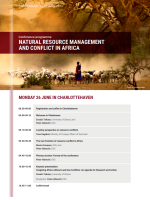
Contact
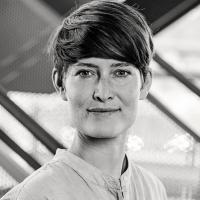


Research and activites
-
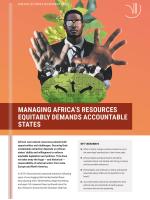 Photo/illustration by Rasmus FlyDIIS Policy Brief2023Peter Albrecht, Marie Ladekjær Gravesen, Frank Agyei, Kwesi Aning, Richard Asante, Deborah Atobrah, Anne Bartlett, Sandra Bhatasara, Veronika Čáslavová, Mamadou Cisse, James Drew, Esther Egele-Godswill, Sophie Erfurth, Abel Gwaindepi , Rahma Hassan, Sti…
Photo/illustration by Rasmus FlyDIIS Policy Brief2023Peter Albrecht, Marie Ladekjær Gravesen, Frank Agyei, Kwesi Aning, Richard Asante, Deborah Atobrah, Anne Bartlett, Sandra Bhatasara, Veronika Čáslavová, Mamadou Cisse, James Drew, Esther Egele-Godswill, Sophie Erfurth, Abel Gwaindepi , Rahma Hassan, Sti… -
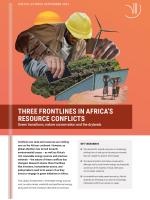 Photo/illustration by Rasmus FlyDIIS Policy Brief2023Green transitions, nature conservation and the drylandsPeter Albrecht & Marie Ladekjær Gravesen
Photo/illustration by Rasmus FlyDIIS Policy Brief2023Green transitions, nature conservation and the drylandsPeter Albrecht & Marie Ladekjær Gravesen

